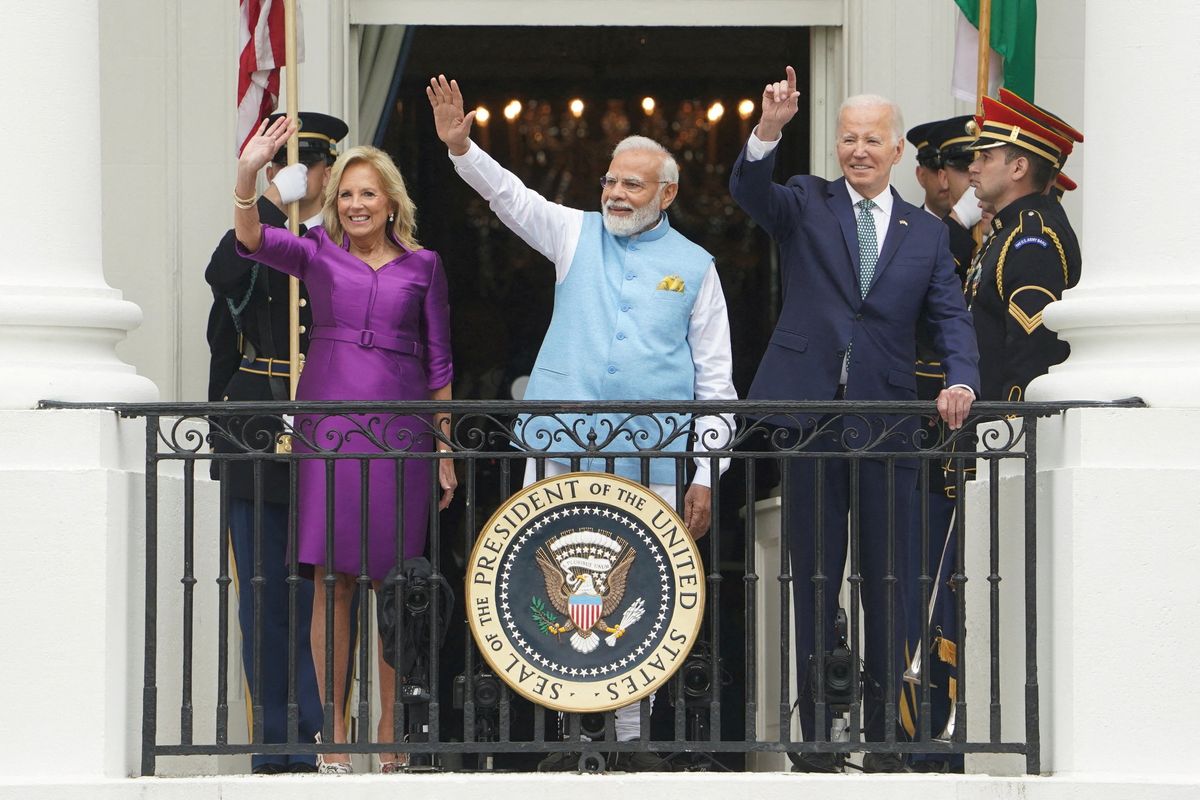India’s PM Narendra Modi got the star treatment this week in Washington, DC, becoming only the third head of state – after France’s Emmanuel Macron and South Korea’s Yoon Suk Yeol – to be honored with all the pomp and circumstance of an official state dinner by President Joe Biden.
After meeting with Biden on Thursday, Modi also addressed a joint session of Congress at the US Capitol – his second speech before US lawmakers since coming to power in 2014. He spent a large chunk of time talking up India’s democratic bonafides, referring to his country as “the mother of democracy” and nodding to the state’s 2,500 political parties.
Modi also reinforced that “diversity is a natural way of life,” a clear pushback to critics who say that the Indian head of state has eroded democratic norms at home by giving a pass to Hindu vigilantes (more on that below).
Regarding the war in Ukraine, he called for respect for “territorial integrity and sovereignty,” but he failed to refer to Russia and instead made sweeping references to the need for “diplomacy.”
So why all the bells and whistles for Modi? As India solidifies its place as a political and economic power, the US has placed the South Asian giant at the center of its geopolitical strategy aimed at both diversifying the global economy (code for diverting supply chains away from China) and forming a diplomatic alliance of like-minded democracies to counter American foes like Russia and China.
For Washington, boosting ties with India, a self-defined non-aligned state, has become even more urgent since Russia, a longtime Indian ally, started a war in Ukraine. Indeed, India has been buying up a lot of cheap Russian oil, which has been central to keeping Moscow’s economy afloat.
Biden, for his part, has come under fire for warmly embracing Modi, a Hindu nationalist who stands accused of suppressing religious minorities at home – particularly Muslims – and was once banned from entering the US for failing to respond to a religious pogrom in his home state of Gujarat when he was Chief Minister. But as India’s star rises, having recently surpassed China as the world's most populous country, Washington has clearly opted for alliances based on realpolitik concerns rather than human rights.

















